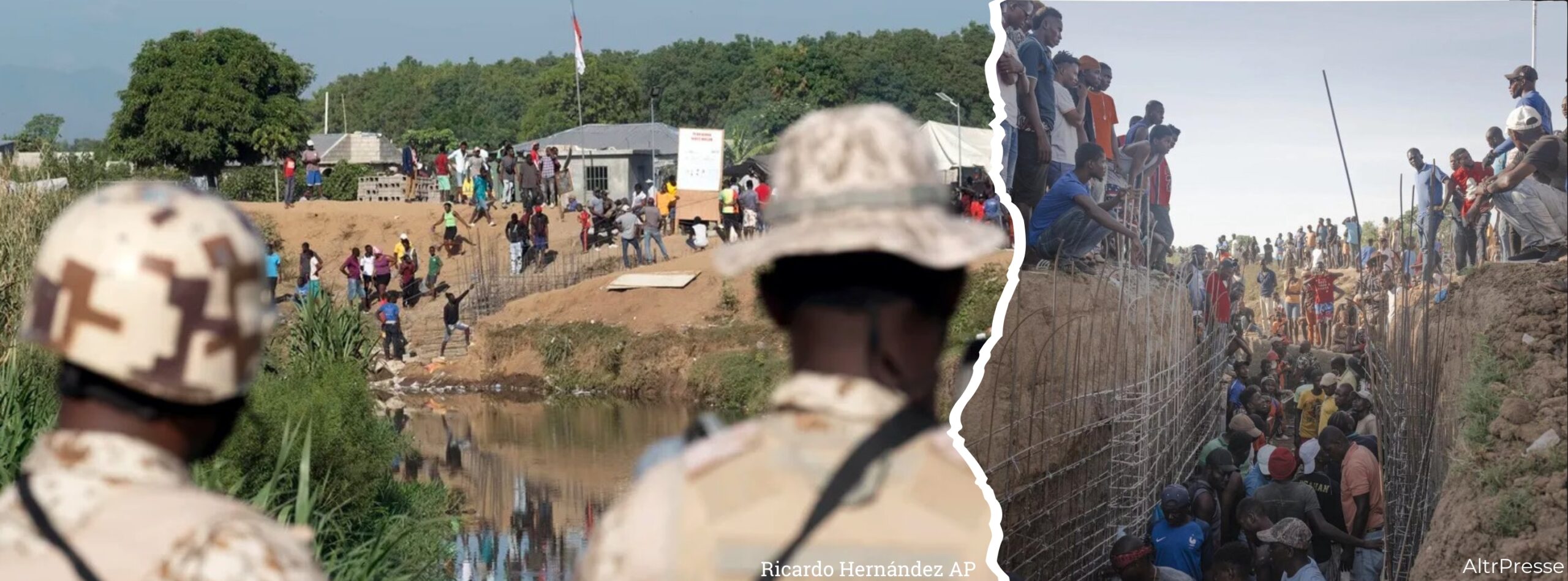Haiti: Peasants defend their Food Sovereignty amidst new attempts at international interference

Dominican President Luis Abinader has made the controversial decision to close the borders between the Dominican Republic and Haiti. This action comes in the wake of accusations that private Haitian interests are diverting the course of the Massacre River, arguing that it could reduce the river’s flow and harm downstream ecosystems. However, under international law and existing bilateral treaties, Haiti has the right to use this shared water source, provided it does so equitably and without causing harm.
A recent investigation reveals a meeting held on May 27, 2021, during which both countries adopted a joint declaration acknowledging that “based on the information provided today by the representatives of the Republic of Haiti and in a spirit of understanding and information exchange in accordance with the provisions of the February 1929 treaty, the ongoing works in the Massacre River or Dajabon for water capture do not constitute a diversion of the river’s course.”
The Dominican government’s decision, devoid of justification and in violation of the legitimate right of the Haitian people to equitably utilize shared water resources at the border, raises questions about the true motives behind this measure. It has had a severe impact on farmers and peasants living in the northeastern border region of Haiti. The Maribaroux plain, an area with significant agricultural potential, heavily relies on the Massacre River for irrigation. The current water shortage in the region prompted Haitian peasants to resume construction of an irrigation canal, the construction of which was agreed upon ten years ago and was halted following the assassination of former President Jovenel Moïse in 2021. The closure of the borders by the Dominican government is a response to this urgent initiative, endangering the food sovereignty of the Haitian communities in the northeast and affecting cross-border trade between the cities of Ouanaminthe (Haiti) and Dajabon (Dominican Republic). Delegations from LVC Haiti traveled there on the past Friday, September 22nd, to convey their solidarity with peasants in the area.
The measure concerning the Massacre River recalls the tragic history of the region. In 1937, Dominican dictator Rafael Trujillo orchestrated a racist and inhumane act known as “El Corte” or “Parsley Massacre,” ordering the Dominican armed forces to forcibly expel Haitians and Dominicans of Haitian descent from the country through the river. This tragedy resulted in a massacre in which over 20,000 lives were lost. It wasn’t until decades later, during the Dominican government of Salvador Jorge Blanco in the 1980s, that the Dominican-Haitian border was reopened.
In light of recent events, the Dominican Republic has further tightened its immigration policy towards Haiti, already quite violent, by conducting raids and constructing a border wall. Additionally, the suspension of visas and the closure of border crossing points have raised concerns about the violation of the fundamental rights of the Haitian people.
The Kenya Proposal and International Interference in Haiti
President Abinader met with his Kenyan counterpart, William Ruto, on September 19th to discuss the proposal to establish a multinational force in Haiti, stating that “the same community in Haiti is unable to resolve its issues.” During this meeting, held as part of the 78th United Nations General Assembly in New York, the Dominican President clarified that the Dominican Republic would not participate in any military action “for obvious reasons.” He explained that the meeting with Ruto aimed to understand Kenya’s plans so that his administration could implement security measures, coinciding with the unjustified closure of the borders with Haiti a few days earlier. In this context, U.S. Secretary of State Antony Blinken announced $65 million in support for the training of the Haitian police and endorsed the Kenyan government’s initiative, committing an additional $100 million in logistical and financial support, including the protection of key facilities and assistance in communication and intelligence. This is aimed at supporting the establishment of a multinational force led by Kenya.
This unacceptable proposal, which seeks to encourage international intervention in Haiti, will need to be examined and approved by the United Nations Security Council in the coming days and weeks. Furthermore, peasant organizations and Haitian civil society have reiterated their call for a “Haitian solution for Haiti” through a public statement issued by the Monitoring Office of the August 30, 2021 Agreement, also known as the Montana Agreement. This agreement proposes a series of measures emphasizing the sovereignty of the people as the key to resolving the crisis caused by foreign capitalist interests.
